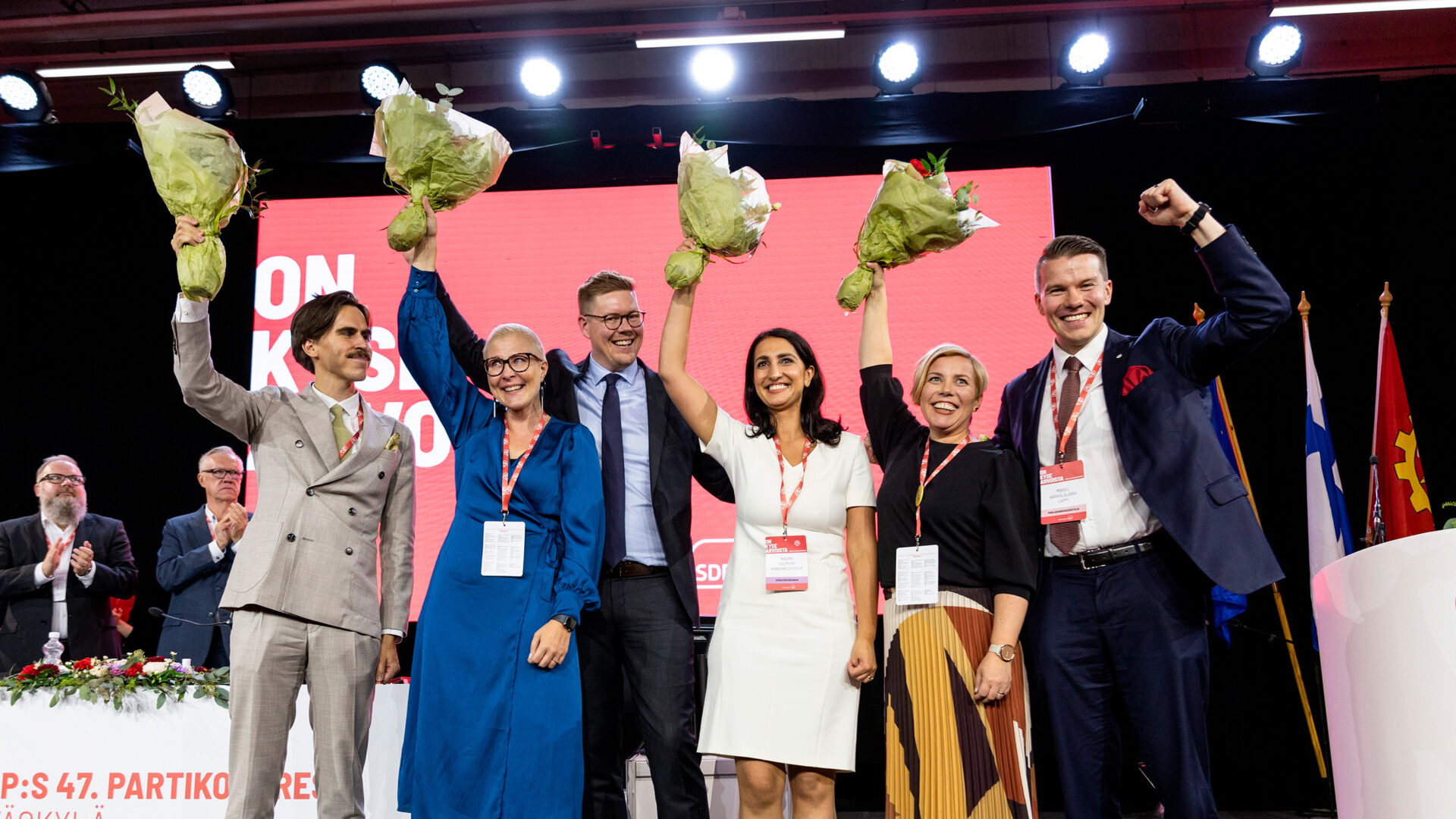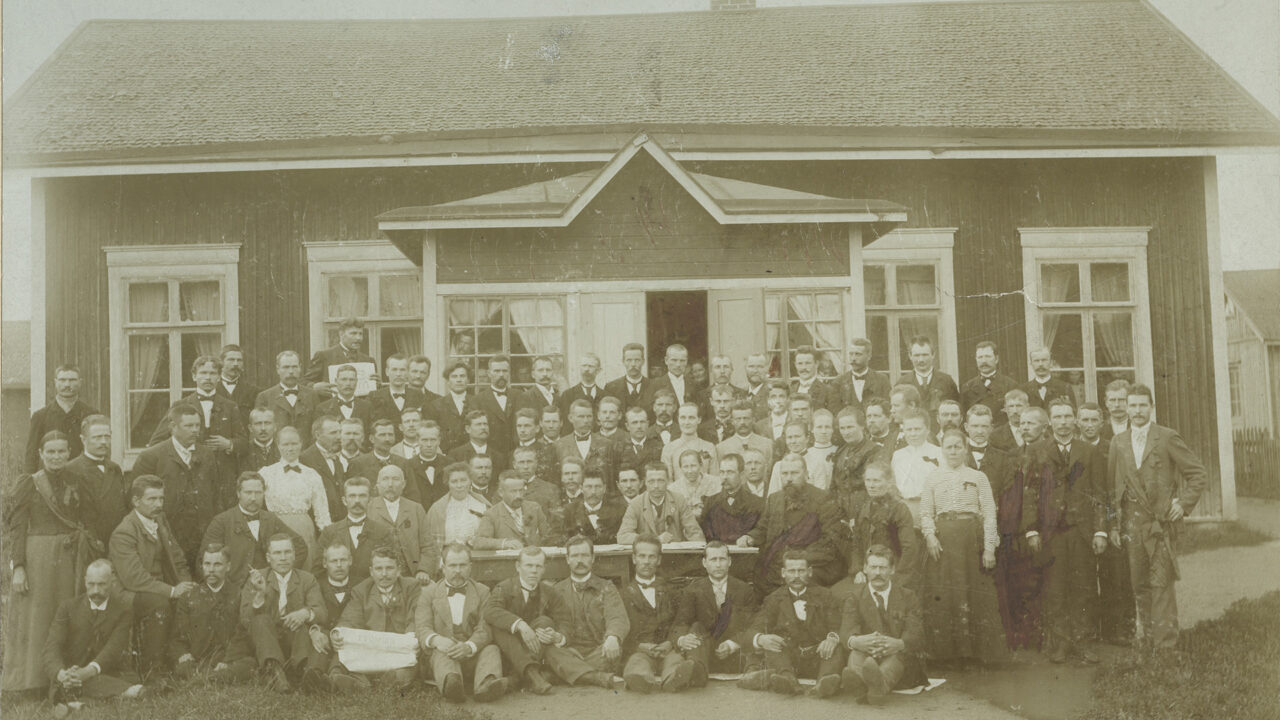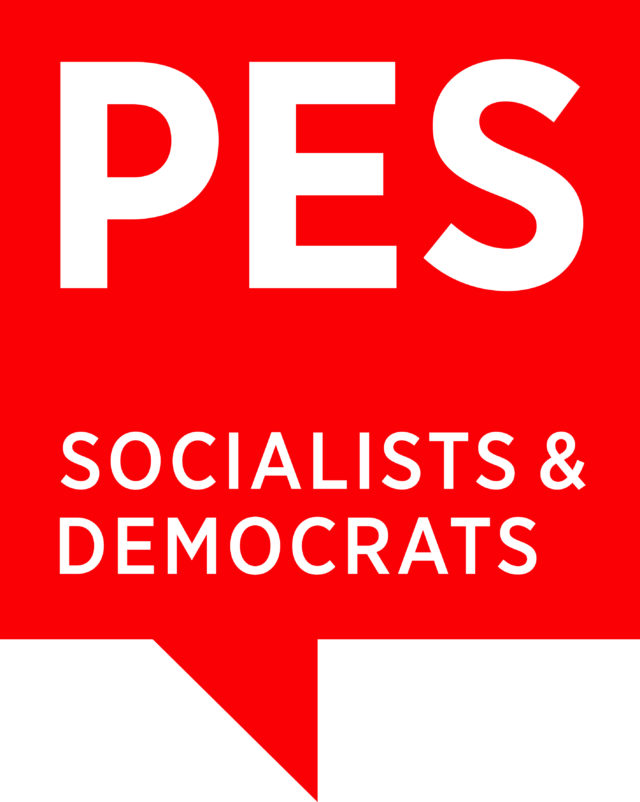
About SDP
SDP is a nationwide party of almost 30,000 members. SDP's objective is a society where freedom overcomes oppression, humanity overcomes intolerance and equality overcomes egoism.
For us social democrats, important topics include work and a fair working life, effective public services and safe neighbourhoods, caring for people, environmental protection, as well as guaranteeing and fostering education and training. The values of SDP are defined in our Declaration of Principles.
Values
Our core values are freedom, equality and solidarity. The values of social democracy are implemented, above all, through democracy, the welfare state and cooperation. The society must guarantee each of its members equal opportunities to build their own life.
-
Freedom stands for everyone’s right to live their own lives and make their own choices. It also stands for freedom from fear, insecurity, and deprivation. Without social rights like these, freedom would remain a meaningless dead letter. To implement freedom of the individual, a society and joint structures are needed.
-
Genuine freedom arises from equality. In an unequal society, freedom only extends to the strong. Human dignity is equal for everyone, and thus everyone should have equal opportunities to build their lives and to contribute to society. Diversity is a source of richness but inequality is an injustice. Poverty, excessive income disparities, and discrimination are examples of threats to equality, and they must be abolished.
-
The third core value, solidarity, also stands for a sense of community. We are dependent on one another, and together we are more than the sum of our parts. Also responsibility for our fellow human beings and for the environment go hand in hand with solidarity. We must make sure so that our fellow human beings – and future generations, too – have the chance to live a good and decent life. Solidarity rejects egoism and self-interest but values everyone’s individuality.
Decision-making in the party
-
In SDP, it is the party members – connected by the responsibility for our common values, jointly established rules, and voluntary work for the organisation – who hold power. The ultimate decision-making power in SDP rests with the Party Congress, and between party congresses, the highest decision-making body in SDP is the Party Council.
-
The ultimate decision-making power in SDP rests with the Party Congress, held every three years. The 500 Party Congress delegates are democratically chosen from among party members.
The Party Executive Board decides when and where the Party Congress is held. The Executive Board may also decide to hold an extraordinary Party Congress, if necessary.
The Party Congress elects SDP’s Chair, General Secretary, three Vice Chairs, and other members of the Party Executive Board. The Party Congress also elects the members and Chair of the Party Council.SDP’s policies are defined in the Party Congress. Decisions of the Party Congress are the foundation for, among others, election programmes and SDP’s objectives in government programme negotiations. SDP’s political course is democratically formed through motions proposed by local party branches and individual members, the Party Congress’s answers to them, and positions and political programmes prepared for the Congress by the Party Executive Board.
According to SDP bylaws, motions to the Party Congress can be made by members of local party branches, local party branches, district organisations, the Party Executive Board, the Party Council, and the Social Democratic Parliamentary Group, the SDP Delegation in the European Parliament, as well as Social Democratic Women, Nuorten Kotkien Keskusliitto, The Social Democratic Youth, Social Democratic Students SONK, and Suomen Wanhat Toverit.
-
Between party congresses, the highest decision-making body in SDP is the Party Council. The Party Congress elects the Chair and the 60 members of the Party Council.
The Party Council holds its ordinary meetings twice a year and, for example, considers the party’s action plans and annual reports every year, determines membership fee criteria, and decides on SDP’s participation in the national government after elections.
-
The steering body of SDP’s practical political activity is the Party Executive Board that convenes twice a month. For example all SDP ministers, when SDP is in government, participate in the meetings of the Party Executive Board.
The Party Executive Board also implements the decisions made by the Party Congress and the Party Council.

SDP's history
SDP was founded in Turku in 1899 as the Finnish Labour Party.
Learn about SDP's historyInternational contacts and development cooperation
SDP is very active on the international level. Social Democrats are a significant political force in almost all European countries.
-
SDP is active in SAMAK, the Co-operation Committee of the Nordic Social Democratic parties and trade unions. SAMAK leadership rotates between the Social Democratic parties of the four biggest Nordic countries.
-
SDP is a member of the Party of European Socialists (PES). PES is a cooperative organisation founded by the Social Democratic parties of EU member states.
Read PES Declaration of principles (pdf)
-
SDP is a member of the Socialist International (SI), an international cooperative organisation of Social Democratic parties. SDP also has extensive bilateral contacts with several parties across the globe.
-
SDP is a member of the Progressive Alliance (PA), an international network of centre-left parties. The Progressive Alliance was established in the 2010s, and SDP is one of its founding members.
-
SDP is involved in development cooperation through the International Solidarity Foundation. The foundation has development cooperation projects in different parts of the world.
-
SDP is involved in Demo Finland, a cooperative organisation of Finnish parliamentary parties. Demo Finland enhances democracy by supporting collaborative projects between Finnish political parties and political parties in new and developing democracies.